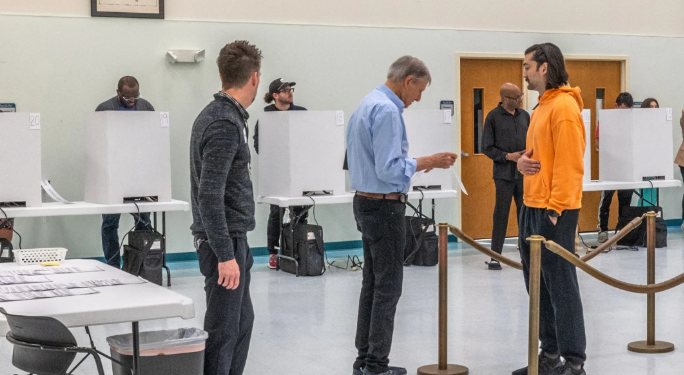Dec 31, 2024 Story by: Editor
CHARLOTTE, N.C. — For over a decade, North Carolina has been embroiled in a contentious debate over requiring voter identification. The issue finally saw a significant trial run during last month’s presidential election.
While only a small fraction of ballots were rejected, critics argue that voter ID laws address a non-existent problem while disproportionately impacting Black voters.
A Personal Account of the ID Challenge
Charlotte resident Kelle Pressley, a frequent voter with 29 ballots cast since 2008, experienced difficulties when she realized she had forgotten her ID on Election Day.
“I change bags often, and I was thinking I had it on me, but I didn’t,” Pressley shared. “I still haven’t found it.”
Initially, precinct workers advised her to retrieve her ID from home instead of offering her the option of casting a provisional ballot and completing an ID exception form, which accommodates voters without IDs for various reasons, such as transportation challenges or lost identification.
Pressley contacted a voter protection hotline before returning to her precinct just an hour before polls closed. This time, she was allowed to complete the exception form and cast a provisional ballot, which was ultimately counted.
“Someone else would have … been like, ‘Forget about it, I’m not voting,'” she reflected. “‘Que sera sera, whatever will be will be.'”
Few Rejected Ballots, But Racial Disparities Persist
Of the more than 5.7 million North Carolinians who voted, nearly 6,900 arrived without photo ID. Most were able to cast provisional ballots, but 1,670 voters had their ballots rejected, equating to one in every 3,400 voters.
Attorney Kathleen Roblez of Forward Justice, which is suing over the law, argued that even this small number is significant, considering the rarity of in-person voter fraud.
“So you really have no idea how many people saw all of the information about ID and said, ‘I can’t vote,'” Roblez said.
A History of Legal Battles
North Carolina’s voter ID saga began in 2013 when Republican lawmakers passed a strict photo ID law after gaining legislative control in 2011. The 4th Circuit Court of Appeals struck it down in 2016, stating that it targeted Black voters with “almost surgical precision.”
In 2018, voters approved a constitutional amendment requiring photo ID, and lawmakers enacted a more lenient law permitting multiple forms of ID and provisional ballots with valid reasons for lacking identification.
Despite these changes, six voters and the NAACP challenged the law, resulting in its rejection by judges in 2021 for racial discrimination.
However, in 2023, the state Supreme Court, now with a Republican majority, reinstated the photo ID requirement. The law took effect for municipal elections that fall and was tested during the 2024 primary and November’s general election.
Disparities in Rejected Ballots
Black voters accounted for 30% of rejected ballots, despite making up 20% of the electorate.
“Black North Carolinians statistically lack the kind of IDs that would be approved,” Roblez said. “And they are also statistically more likely to have a hard time getting the other ID.”
Andy Jackson of the conservative John Locke Foundation emphasized that the absolute number of rejected ballots for Black voters—502—was small, though disparities among groups are inevitable.
“I don’t know if anyone ever expects any statistic to be exactly the same,” Jackson noted.
Future Changes in the Works?
Some Republicans in North Carolina have questioned whether the ID exception form undermines the law’s purpose. However, Jackson believes many Republicans prefer to avoid further lawsuits.
“I don’t know how strict they want to go because I don’t know if they have an appetite for another lawsuit,” he said.
This week, GOP lawmakers proposed a constitutional amendment to require photo ID for mail-in voting, signaling that the voter ID debate in North Carolina is far from over.
Despite the law’s implementation, it would not have altered the outcome of this year’s presidential race, where Donald Trump secured victory in North Carolina by 183,000 votes. Source: VPM

















